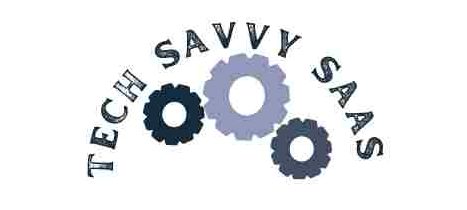In the rapidly evolving landscape of technology, sustainability has emerged as a crucial concept that goes beyond mere environmental concerns. In the context of tech companies, sustainability encompasses a broader spectrum, encompassing not only environmental responsibility but also ethical, social, and economic considerations.
The technology sector, known for its rapid innovation and transformative capabilities, plays a pivotal role in shaping the future. As the industry advances, the significance of sustainable practices becomes increasingly apparent. Beyond regulatory compliance, companies are recognizing the long-term benefits and positive impacts associated with integrating sustainability into their operations.
To comprehend the practical implications of sustainable practices in tech companies, case studies serve as invaluable tools. These real-world examples provide insights into successful strategies, challenges faced, and outcomes achieved. Through the lens of case studies, tech professionals gain a comprehensive understanding of the multifaceted nature of sustainability within the industry.

Factors Influencing Sustainable Practices
- Factors Influencing Sustainable Practices
- Google's Approach to Sustainable Development
- SMEs Leading the Way in Sustainable Technologies
- Green marketing practices adopted by SMEs
- Circular Economy and Waste Management Challenges in the Tech Industry
- Emphasis on Actionable Insights for Tech Companies
- Circular Economy and Value Capture Strategies for Sustainable Development
The success of implementing sustainable practices in tech companies hinges on the careful identification of key factors that shape and influence decision-making. Understanding these factors is crucial for developing effective strategies that align with the overarching goal of sustainability.
Environmental impact is at the forefront of considerations for tech companies embracing sustainability. Beyond minimizing their carbon footprint, companies are increasingly focusing on adopting a green supply chain. This involves scrutinizing every stage of the supply chain process to ensure that it adheres to environmentally responsible practices. From sourcing raw materials to product manufacturing and distribution, the entire supply chain plays a pivotal role in determining the overall ecological impact of a tech company.
Technological and environmental factors driving innovation
In the dynamic landscape of the tech industry, innovation is a driving force, and it is significantly influenced by both technological and environmental factors. Companies are constantly seeking innovative solutions that not only meet technological demands but also address environmental concerns. The integration of eco-friendly technologies and processes is becoming a hallmark of sustainable innovation in tech.
The Role of Green Human Resource Management (HRM) and Green Marketing
Green Human Resource Management (HRM) is a strategic approach that emphasizes the importance of integrating sustainable practices into HR policies and procedures. This includes fostering a culture of environmental responsibility among employees, promoting ethical labor practices, and ensuring a healthy work-life balance.
Simultaneously, green marketing plays a vital role in communicating a company’s commitment to sustainability. From promoting eco-friendly products to emphasizing corporate responsibility, green marketing strategies help tech companies align their brand image with environmentally conscious consumer expectations.
Business Models and Technological Innovations for Sustainable Development
The development of sustainable business models is a fundamental aspect of fostering long-term environmental and economic viability. Companies are exploring innovative ways to align their operations with sustainable practices, from adopting circular economy principles to incorporating renewable energy sources into their business models.
Technological innovations also play a pivotal role in sustainable development. From energy-efficient solutions to eco-friendly product designs, tech companies are at the forefront of leveraging technology to minimize environmental impact.
Evaluating the Impact of the COVID-19 Pandemic on Sustainable Practices
The global COVID-19 pandemic has brought about unprecedented challenges, disrupting industries and redefining priorities. For tech companies, it has prompted a reevaluation of their sustainable practices. From remote work policies reducing carbon emissions to supply chain disruptions emphasizing the need for resilience, the pandemic has both posed challenges and unveiled opportunities for enhancing sustainability.
Google’s Approach to Sustainable Development
Google, a global technology giant, has been a trailblazer in adopting and promoting sustainable practices. From renewable energy commitments to waste reduction initiatives, Google’s approach encompasses a wide array of sustainability measures. Understanding the scope and scale of these initiatives provides valuable insights into the potential impact of large tech companies on global sustainability efforts.
Impact on Business Performance and Innovation
The integration of sustainable practices at Google has not only contributed to environmental well-being but has also had a significant impact on business performance and innovation. Examining the positive outcomes, such as cost savings through energy efficiency and the fostering of a culture of innovation, sheds light on the broader implications of sustainability for tech companies.
Key Challenges Faced and Overcome
Despite its successes, Google has faced challenges in implementing sustainable practices. These challenges, whether related to technology adoption, organizational resistance, or external pressures, provide valuable lessons for other tech companies. Understanding how Google overcame these hurdles contributes to a more comprehensive understanding of the complexities involved in sustainable development.
Analyzing the Relevance of Google’s Business Model in the Context of Environmental Issues
Google’s business model, centered around technology and information services, has a profound impact on environmental sustainability. Analyzing this model in the context of environmental issues allows for a critical examination of the interplay between business operations and ecological responsibility. This analysis can serve as a benchmark for other tech companies seeking to align their business models with sustainable practices.
- More Post: Green Web Hosting: Choosing Eco-Friendly Options for Your Website
- More Post: The Green Revolution in the Automotive Industry
SMEs Leading the Way in Sustainable Technologies
While large tech companies like Google set industry standards, small and medium-sized enterprises (SMEs) often lead the way in terms of innovation and adaptability. Exploring specific case studies of SMEs that have successfully embraced sustainable technologies provides valuable insights into the unique challenges and opportunities faced by smaller players in the tech industry.
The Connection Between Sustainable Practices, Business Models, and Competitive Advantage
SMEs leveraging sustainable practices often discover new avenues for creating value and gaining a competitive edge. The interconnectedness of sustainable practices, innovative business models, and enhanced competitive advantage becomes evident through these case studies. Understanding how sustainability contributes to the success of SMEs offers valuable lessons for larger organizations aiming to stay ahead in the market.
Green marketing practices adopted by SMEs
Effective communication of sustainability initiatives is crucial for SMEs. Examining the green marketing practices employed by these smaller tech companies provides insights into how they navigate the challenge of conveying their commitment to sustainability to consumers. This aspect is particularly relevant in an era where environmentally conscious consumers play an active role in shaping market dynamics.
Lessons for Larger Organizations in Value Creation and Sustainable Development
The experiences of SMEs in sustainable technologies offer valuable lessons for larger organizations. From nimble decision-making processes to fostering a culture of innovation, larger tech companies can draw inspiration from the approaches adopted by SMEs. Understanding these lessons contributes to a holistic perspective on value creation and sustainable development in the tech industry.
Academic Research on Sustainable Practices in Tech Companies
The academic landscape plays a crucial role in shaping the discourse on sustainable practices within the technology sector. An overview of the existing research provides a foundation for understanding the current state of knowledge, gaps in understanding, and emerging trends in sustainable technology.
Journal Articles and Scholarly Publications Providing Insights into Sustainable Business Models
Leading academic journals serve as repositories of in-depth analyses and case studies, offering valuable insights into various facets of sustainable business models in tech companies. Examining these articles provides a comprehensive understanding of the theoretical underpinnings and practical implications of integrating sustainability into the core of technological enterprises.
Research Models and Frameworks for Analyzing and Adopting Sustainable Practices
The development of robust research models and frameworks is instrumental in advancing the understanding of sustainable practices in the tech industry. These models provide a structured approach to analyzing and adopting sustainable practices, offering a systematic lens through which researchers and industry professionals can navigate the complexities inherent in sustainability initiatives.
The Role of Organizational Factors and Technological Innovations in Sustainable Development
Organizational factors and technological innovations are integral components of the sustainable development narrative within tech companies. Research examining the impact of organizational structures, cultures, and processes on the successful integration of sustainable practices is crucial. Simultaneously, understanding how technological innovations contribute to sustainable development helps delineate the intersection of technology and environmental responsibility.
International Journal Contributions and the Impact of the COVID-19 Pandemic on Research Focus
The international dimension adds a layer of complexity to the understanding of sustainable practices. Exploring contributions from various regions helps identify region-specific challenges, solutions, and innovations. Moreover, the research landscape has been influenced by the global COVID-19 pandemic, necessitating a shift in focus. Investigating how this unprecedented event has influenced research priorities and perspectives provides a timely and relevant lens through which to view the evolving discourse on sustainable practices.
Challenges in Implementing Sustainable Practices
The adoption of sustainable practices in the tech industry is not without its share of challenges. Identifying these challenges is crucial for developing targeted strategies to overcome obstacles and ensure a seamless integration of sustainability into business operations.
Organizational resistance and the importance of social responsibility
Organizational resistance stands out as a significant hurdle when tech companies embark on the journey toward sustainability. Employees, leadership, and even stakeholders may resist changes to established practices. Overcoming this resistance requires a concerted effort to instill a sense of social responsibility within the organizational culture. Demonstrating the positive impact of sustainability on the community and society at large can help align organizational values with the broader goal of environmental stewardship.
Integration of Sustainable Practices into Existing Business Models
One of the key challenges is seamlessly integrating sustainable practices into existing business models. Tech companies often operate within frameworks optimized for efficiency and profit. Adapting these models to accommodate sustainability requires a delicate balance between preserving operational efficiency and embracing eco-friendly initiatives. Strategic planning and a phased approach to integration are essential to navigating this challenge successfully.
Balancing economic and environmental concerns
The perpetual challenge faced by tech companies is finding the equilibrium between economic considerations and environmental responsibility. The initial costs associated with adopting sustainable technologies or processes may pose financial challenges. Balancing short-term economic concerns with the long-term benefits of sustainability demands a strategic approach. Tech companies must weigh the upfront costs against the potential savings, brand enhancement, and future-proofing benefits associated with sustainability.
Circular Economy and Waste Management Challenges in the Tech Industry
Embracing a circular economy model is a central tenet of sustainable practices, but it comes with its own set of challenges, particularly in the tech sector. Products with short lifecycles, rapid technological advancements, and electronic waste (e-waste) present unique hurdles for creating closed-loop systems. Addressing waste management challenges requires innovative solutions for product design, recycling infrastructure, and consumer education. Tech companies must navigate these complexities to minimize their environmental footprint.
Summarization of Key Learnings from Case Studies and Research
The exploration of case studies and academic research yields valuable insights that distill into key learnings for tech companies aiming to integrate sustainable practices into their operations.
- Holistic Approach: Successful adoption of sustainable practices involves a holistic approach that goes beyond environmental considerations. Embracing sustainability necessitates addressing social, economic, and ethical dimensions to create comprehensive solutions.
- Innovation Drives Sustainability: Technological innovation plays a pivotal role in driving sustainability. From Google’s initiatives to small SMEs embracing sustainable technologies, innovation is a common thread in successful sustainable practices.
- Challenges are Opportunities: Challenges, whether organizational resistance, integration complexities, or economic considerations, are inherent in the journey toward sustainability. However, each challenge presents an opportunity for growth, learning, and innovation.
- Circular Economy Integration: The concept of a circular economy emerges as a cornerstone for sustainable development. Tech companies should shift from a linear ‘take, make, dispose’ model to a circular one that promotes reuse, refurbishment, and recycling of resources.
- Social Responsibility Matters: Overcoming organizational resistance requires a strong focus on fostering a culture of social responsibility. Aligning sustainability goals with broader social and community welfare enhances employee engagement and organizational commitment.
Emphasis on Actionable Insights for Tech Companies
The key takeaways from case studies and research offer actionable insights for tech companies navigating the complex landscape of sustainable practices.
- Strategic Innovation Investment: Prioritize investments in strategic innovation that align with sustainable development goals. This includes adopting eco-friendly technologies, optimizing processes for efficiency, and exploring new business models that promote sustainability.
- Cultivate a Culture of Sustainability: Actively foster a culture that embraces sustainability. This involves integrating sustainable practices into employee training, performance metrics, and corporate values. Employees should be champions of sustainability within the organization.
- Collaboration and Knowledge Sharing: Collaborate with industry peers, stakeholders, and even competitors to share knowledge and best practices. Sustainable development is a collective effort, and knowledge sharing accelerates progress.
- Economic and Environmental Balance: Navigate the delicate balance between economic considerations and environmental responsibility. While upfront costs may be incurred in adopting sustainable practices, the long-term benefits, including cost savings and enhanced brand reputation, justify the investment.
Circular Economy and Value Capture Strategies for Sustainable Development
Circular economy principles offer a roadmap for tech companies seeking sustainable development. Value capture strategies within this framework include:
- Product Design for Longevity: Design products with longevity in mind, considering repairability, upgradability, and recyclability. This extends the lifespan of products and reduces the environmental impact of disposal.
- Recycling Infrastructure Investment: Invest in robust recycling infrastructure to support the circular economy. Collaborate with recycling partners and contribute to the development of efficient systems for the collection and processing of electronic waste.
- Consumer Education and Engagement: Educate consumers about the importance of responsible consumption and disposal. Implement initiatives that encourage consumers to participate in recycling programs and make informed choices regarding sustainable products.
FAQ
Why should tech companies prioritize sustainable practices?
Prioritizing sustainable practices is essential for tech companies due to the interconnected nature of environmental, social, and economic considerations. It not only aligns with global efforts towards sustainability but also enhances brand reputation, attracts environmentally conscious consumers, and fosters long-term business resilience.
How can sustainable practices contribute to a tech company’s bottom line?
Sustainable practices can contribute positively to a tech company’s bottom line through various means, including cost savings from energy efficiency, innovation leading to new revenue streams, enhanced brand value attracting consumers, and risk mitigation by future-proofing against environmental regulations.
What are the challenges of integrating sustainable practices into tech business models?
Challenges include organizational resistance, economic considerations, and the need for innovative solutions. However, overcoming these challenges presents opportunities for growth, efficiency gains, and increased competitiveness.
Are small and medium-sized tech companies capable of embracing sustainable technologies?
Yes, small and medium-sized tech companies can successfully embrace sustainable technologies. Case studies show that their size often allows for quicker adaptation, innovative solutions, and a more direct connection with stakeholders, fostering agility in adopting sustainable practices.
How does innovation contribute to sustainable practices in the tech industry?
Innovation is a driving force in sustainable practices, as seen in case studies. It leads to the development of eco-friendly technologies, optimized processes, and innovative business models that contribute to both environmental stewardship and business success.
What role does organizational culture play in overcoming resistance to sustainable practices?
Organizational culture is crucial. Aligning the company’s values with social responsibility fosters a culture that embraces sustainable practices, reduces resistance, and engages employees in the journey toward sustainability.
How reliable are data collection methods for assessing a tech company’s environmental performance?
Reliable data collection is crucial. Advances in technology, including Internet of Things (IoT) devices and real-time monitoring, enhance the accuracy of data collection. Collaboration with industry experts and adherence to standardized reporting frameworks further ensure data reliability.
How can tech companies ensure the reliability of their environmental performance data?
Tech companies can ensure reliability by investing in advanced data collection methods, such as IoT sensors and data analytics tools. Collaborating with third-party auditors, adhering to established reporting standards, and regularly updating measurement techniques contribute to the accuracy and reliability of environmental performance data.
- More Post: Carbon Footprint of E-Waste
- More Post: Energy-Efficient Cooling Solutions for Data Centers
Conclusion
In conclusion, the adoption of sustainable practices in the tech industry is not merely a choice but a necessity. It encompasses a holistic commitment to environmental stewardship, social responsibility, and economic resilience. From global tech giants to small enterprises, the industry’s future hinges on the integration of sustainable practices into core business operations.
The journey toward sustainability is ongoing, and tech companies are at the forefront of driving positive change. Embracing this responsibility offers not only the opportunity to contribute to a sustainable future but also positions tech companies as leaders in innovation, resilience, and corporate responsibility. The call to action is clear: adopt and innovate in the realm of sustainability for the betterment of industry, society, and the planet.






